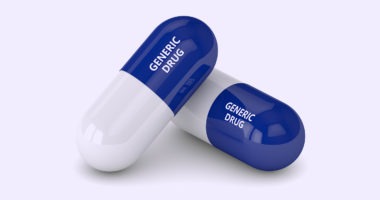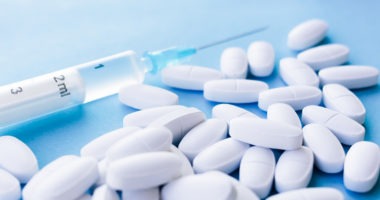M&A Ramps Up in the Global Injectables Market
The injectables market has been particularly active this month with three deals announced or closed. A look at the gains in product positions and manufacturing capabilities from recent deals.
The injectables market is ramping up with three announced deals this month: Pfizer’s proposed acquisition of InnoPharma, Sun Pharma’s acquisition of Pharmalucence, and Hikma’s acquisition of the assets of Bedford Laboratories, the US generic injectables business of Ben Venue Laboratories. What do these deals mean for the market? DCAT Value Chain Insights takes an inside look.
Recent deals
This year has been an active one for the injectables market, with several acquisitions announced or closed. July alone has seen three deals that have increased companies’ product positions in injectables as well as provided the acquired companies with manufacturing capacity.
In one deal, Pfizer Inc. agreed to acquire InnoPharma, Inc., a privately held pharmaceutical development company based in Piscataway, New Jersey, for an upfront cash payment of $225 million, with up to $135 million of contingent milestone payments. InnoPharma’s current portfolio includes 10 generic products approved by the US Food and Drug Administration (FDA). The company also has a pipeline of 19 products filed with the FDA and more than 30 injectable and ophthalmic products under development. InnoPharma’s focus is to develop novel formulations of existing drugs, including hard-to-make products, such as those that require complex manufacturing capabilities or have bioequivalency challenges, in areas such as cancer and central nervous disorders. InnoPharma has developed capabilities in complex injectable delivery forms, including pens and depot injectables and works to leverage this expertise to expand into new dosage forms, including oral suspensions and nasals.
Pfizer Injectables is part of the company’s Global Established Pharma business and includes the manufacturing, production, and sale of human pharmaceutical and surgiceutical products. The company’s current active sterile injectable portfolio consists of 44 products with over 190 presentations in the US. The new Pfizer portfolio of 73 products will include currently marketed and products filed with the FDA. The closing of the transaction is subject to US regulatory approval and is expected to occur during the third quarter of 2014.
Also, earlier this month, Sun Pharmaceutical Industries Ltd. announced the acquisition of Pharmalucence Inc. by one of its subsidiaries. Pharmalucence, a privately held company based in Billerica, Massachusetts, has sterile injectable capacity supported by R&D capabilities. Pharmalucence has a new 70,000-square foot manufacturing facility in Billerica, Massachusetts for automated, isolated aseptic filling. Pharmalucence expects to begin drug manufacturing at the site in the early fourth quarter of 2014.
Hikma Pharmaceuticals PLC, a pharmaceutical company with a generic injectables business, completed earlier this month its acquisition of assets of Bedford Laboratories, the US generic injectables business of Ben Venue Laboratories, which is part of Boehringer Ingelheim. The total consideration of up to $300 million was satisfied through an upfront cash payment of $225 million and includes contingent cash payments of up to $75 million, subject to the achievement of performance-related milestones over a period of five years. Hikma acquired Bedford’s product portfolio, intellectual property rights, contracts for products marketed under license, raw material inventories, R&D and business development pipeline, and a number of employees across key business functions. The combination of these assets with Hikma’s existing global Injectables platform is intended to strengthen Hikma’s position in the generic injectables market in the US. In addition as part of the deal, Hikma has an exclusivity arrangement with Boehringer Ingelheim to potentially acquire substantially all of the assets of the Ben Venue manufacturing facility in Bedford, Ohio. Due diligence is ongoing, and any acquisition will be subject to customary approvals in the United States and the United Kingdom.
Injectables accounted for $536 million, or 39% of Hikma’s 2013 revenues of $1.365 billion. It has 200 products in 379 dosage strengths and forms. The company has a range of manufacturing capabilities, including sterile liquid, powder, lyophilized and cytotoxic products with manufacturing facilities in the US, Portugal, and Germany. As of year-end 2013, the company said it was the third largest generic injectable company by volume in the US, a position it helped to gain through the 2011 acquisition of Baxter’s multisource injectables business. In terms of its product focus, Hikma says it focuses on products in which it can have a competitive advantage either through a period of exclusivity or by developing a vertically integrated active pharmaceutical ingredient supply.
In 2013, Hikma invested in its injectables capacity by adding two new high-speed lines at its plants in the US and Portugal. In Portugal, it also began installing a dedicated R&D line to accelerate the lead times of new product submissions and increase the capacity available for commercial production. In the US, Hikma is investing in the capability to combine its generic injectable products with advanced, innovative delivery systems to address the shift in market demand from vials to pre-filled syringes. In November 2013, Hikma signed a long-term (15 years) commercial supply agreement with the Unilife Corporation for Unilife’s Unifill pre-filled syringes with a range of its injectable products. In 2013, Hikma began installing a pre-filled syringe line, which is scheduled to be completed during 2014. The company also said it also began assessing the potential to establish local manufacturing facilities for injectable products in the Middle East and North Africa (MENA) region.
The US is Hikma’s largest market for generic injectables, accounting for 68% of its total generic injectables business in 2013. In 2013, its US injectables revenue grew by $67 million, or 23%, to $363 million. In Europe, the company’s injectables revenue was $81 million, up 4% from $78 million in 2012; overall Europe accounted for 15% of the company’s injectable revenues. The markets in MENA accounted for the remaining 17% of the company’s 2013 revenues in its injectables business. Revenue in its MENA Injectables business decreased by 4% to $92 million in 2013, compared with $96 million in 2012, primarily due to lower tender sales in 2013.
During 2013, Hikma’s injectables business launched a total of 35 products across all markets, including 10 new compounds and 16 new dosage forms and strengths. The injectable business also received a total of 89 regulatory approvals across all regions and markets, namely 56 in MENA, 28 in Europe, and five in the US. Hikma also signed nine new licensing agreements during 2013, adding innovative injectable products.
In acquiring Bedford Laboratories, Hikma is gaining additional product potential. At the time of the announced acquisition in May 2014, Bedford had an R&D pipeline of 27 products, of which 16 were filed and pending approval from the FDA. From Bedford, Hikma further gained a portfolio of 84 products, which included 82 products of Bedford and two products marketed under third-party licenses. These products include niche, differentiated products, including lyophilized and cytogenic products. Oncology products account for 51% of the acquired portfolio. The acquired products will be tech-transferred to be manufactured in Hikma’s facilities in the US, Portugal, and Germany. Hikma expected to relaunch an initial tranche of approximately 20 products between 2015 and 2017.
Also in 2014, Par Pharmaceutical Companies, Inc. acquired JHP Group Holdings, the parent company of JHP Pharmaceuticals, a specialty pharmaceutical company that develops, manufactures, and markets branded and generic sterile injectable products. JHP, which focuses on US sterile injectable drug market, manufactures and sells branded and generic aseptic injectable pharmaceuticals in hospital and clinical settings and provides contract manufacturing services. At the time of the announced acquisition in January 2014, JHP had a portfolio of 14 specialty injectable products, including Aplisol and Adrenalin, and a pipeline of 34 products, 17 of which had been submitted for approval to the FDA. JHP’s sterile manufacturing facility in Rochester, Michigan has the capability to manufacture small-scale clinical through large-scale commercial products. After closing the deal earlier this year, JHP Pharmaceuticals now operates as an indirect wholly owned subsidiary of Par Pharmaceutical, Inc.
In another deal in 2014 in the injectables market, in February 2014, Pharmaceutical major Lupine Limited announced the acquisition of Naomi B.V., based in Goldenseal, the Netherlands, to position Lupin in the injectables market. Nanomi’s core technology is its proprietary microsieve emulsification process. The microsieves are made by semiconductor technology, which enables the production of highly monodispersed droplets and particles.
Other recent deals
In December 2013, Mylan Inc. completed the acquisition of the Agila injectables businesses from Strides Arcolab Limited for up to $1.75 billion, which included $250 million in contingent consideration. The Agila acquisition provided Mylan with an additional four dedicated R&D facilities staffed by more than 400 scientists and 13 dedicated manufacturing sites across six countries.Through the acquisition, Mylan expanded its injectable product portfolio, pipeline, and capabilities, and as of December 2013, had more than 1,200 approved injectable products globally and more than 900 injectable products pending global approvals. In making the deal, Mylan said it expects to launch more than 800 injectable products through 2018, with approximately 150 of those in the US across a broad range of therapeutic categories and delivery systems.
In December 2013, the investment firm KKR acquired a minority stake in Gland Pharma Limited, a generic injectable pharmaceutical products company based in India, for $200 million. Established in 1978 and based in Hyderabad, Gland Pharma develops and manufactures generic injectables primarily for the US market and also for India and other semi-regulated markets.
This activity is being spurred by strong growth prospects in the generic injectables market, particularly in the US. The global generics injectables market is estimated at $12 billion, with the US accounting for approximately $7.6 billion, according to data from IMS Health and equity research offered by Hikma in a recent investor presentation. The US generics injectables market is projected to grow at approximately 10% per year, a level that outpaces growth in orals and other generic categories. An estimated $9 billion of branded injectables sales are expected to lose patent protection between 2013 and 2015.




